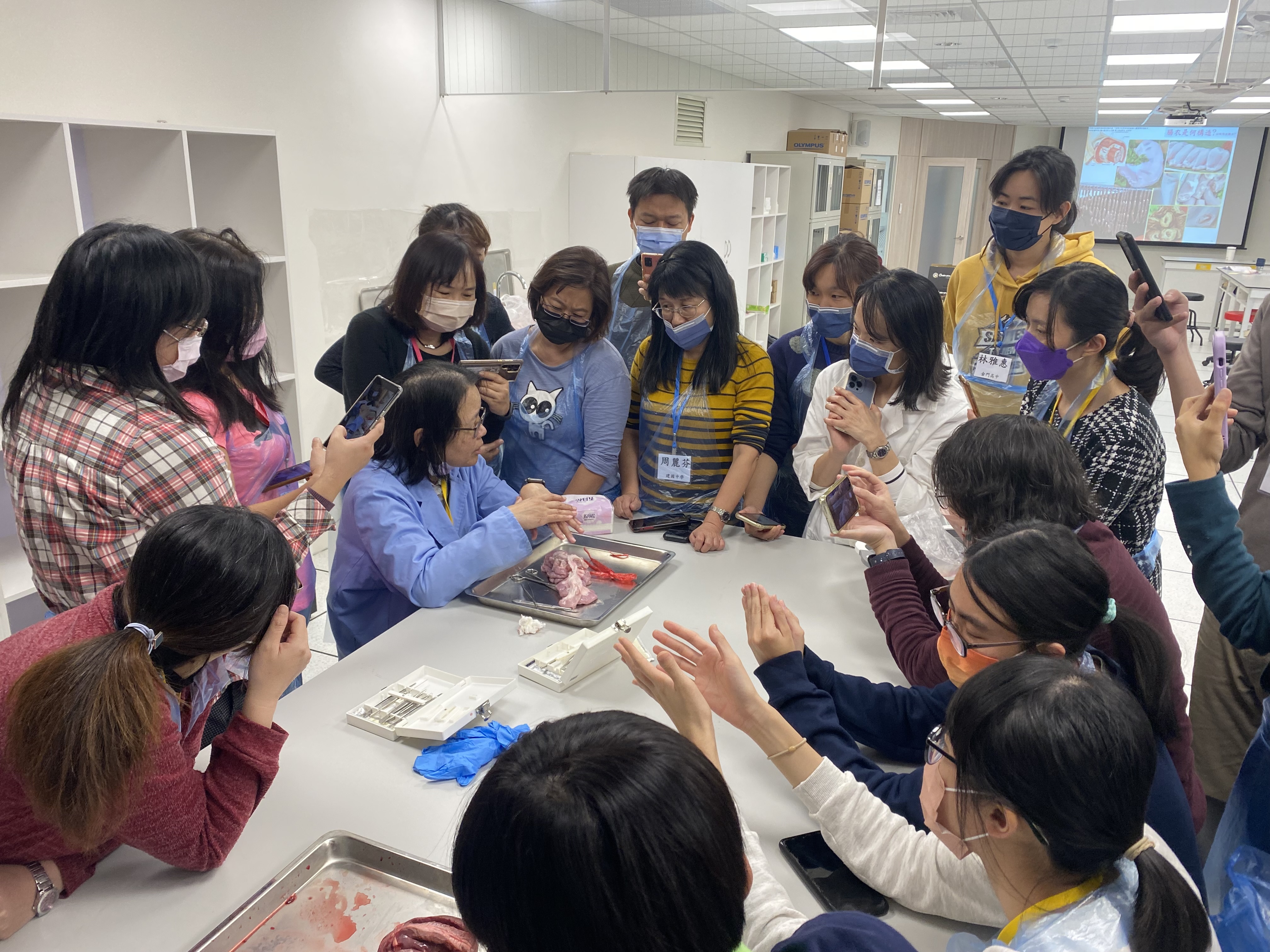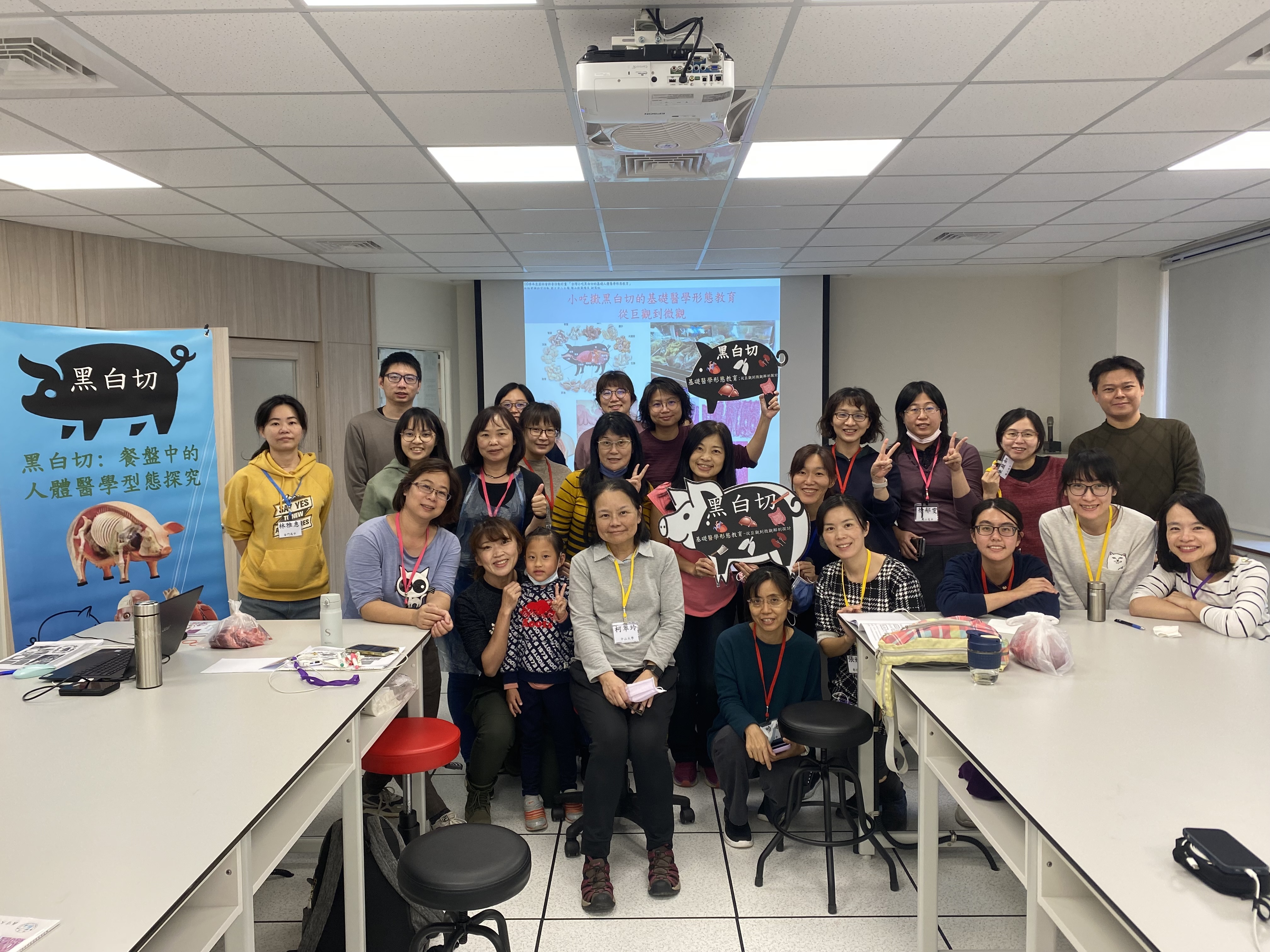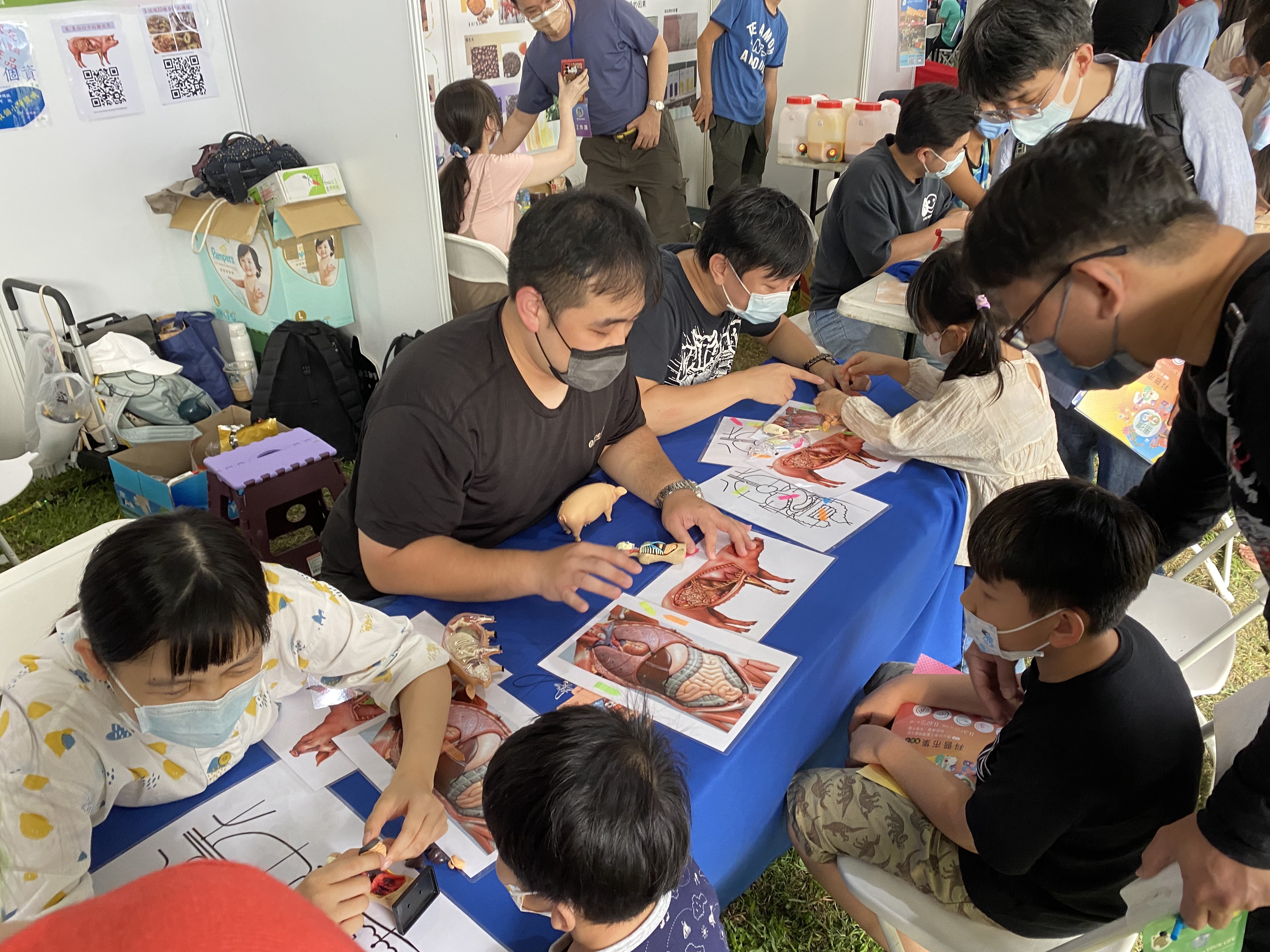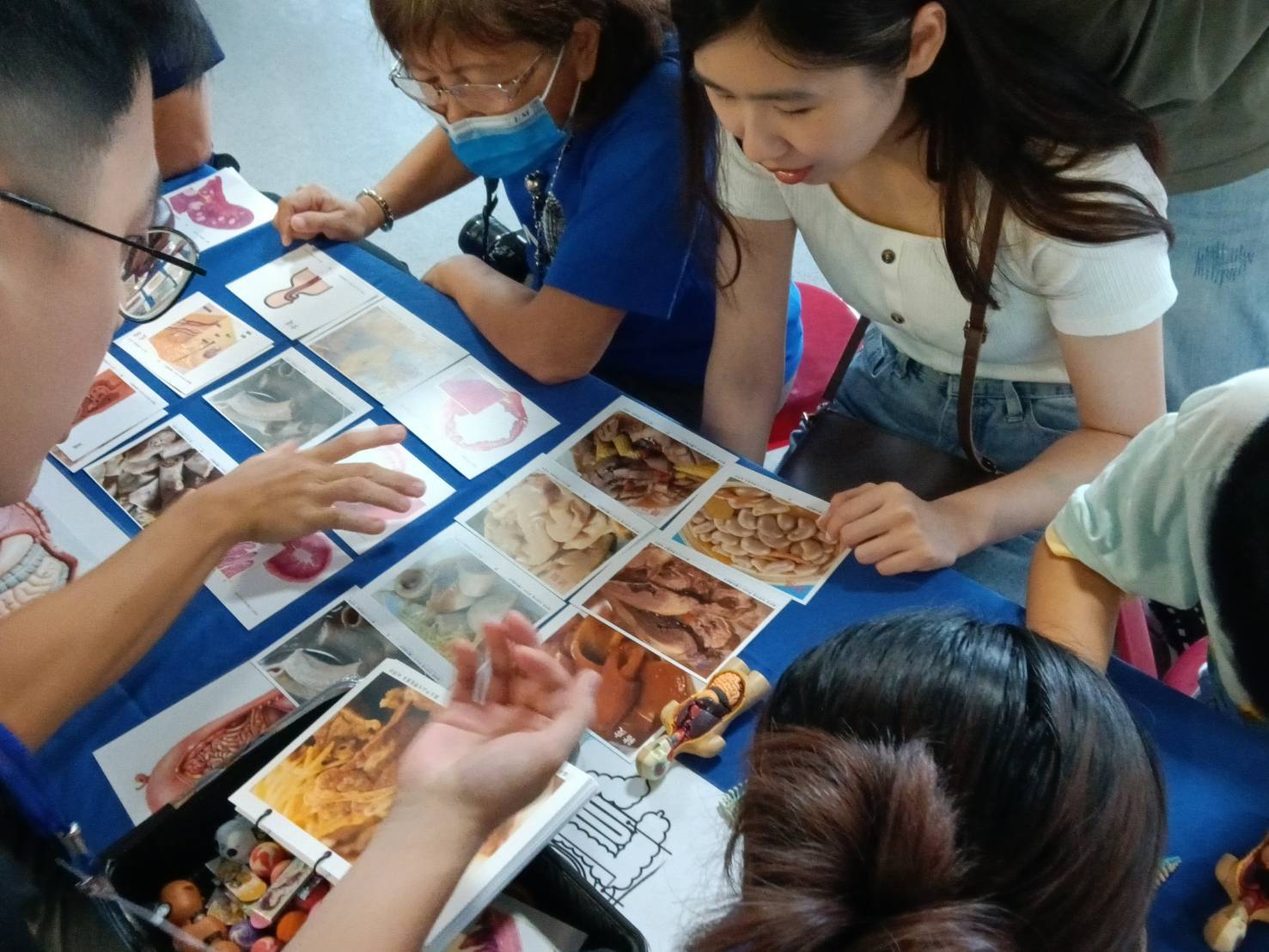Volunteer Service
Assistant Professor Tsuei-Ling Ko from our medical school, along with students, organized a workshop titled 'Science at the Dinner Table – Basic Medical Education through the Taiwanese Snack 'Hei Bai Qie' (Black and White Cut),' inviting high school teachers from across Taiwan to National Sun Yat-sen University School of Medicine. Utilizing various parts of a pig as ingredients from a typical Taiwanese noodle stand's 'Hei Bai Qie,' the workshop aimed to help seed teachers understand medical anatomy. The initiative was designed to enhance the interest and motivation of high school teachers in learning anatomy, involving hands-on practices similar to those in gross anatomy experiments. The goal was to continue the spirit of practical learning in high school classrooms while fostering inspiration for innovative teaching methods.
The workshop utilized the human skeletal model from the medical school's anatomy lab to demonstrate the arrangement of the human skeleton in various positions. Real-life explanations were provided to deepen the understanding of the three-dimensional positions of the human body. The objective was to equip seed teachers with a more detailed understanding of the structure of human bones, the heart, and the eyes for their future operations in related biology laboratories. Seed teachers expressed that the experience of physically engaging with specimens and dissecting organs differed significantly from merely reading textbook descriptions. Some teachers mentioned the tactile experience of dissecting an eye for the first time, emphasizing the value of hands-on experiences in understanding the texture and layers of the eyeball.
Faculty and students from our post-baccalaureate medical program also participated in science outreach activities at the Kaohsiung Museum of Science and Technology before the Taiwan Science Festival. Using common ingredients found in ten types of 'Hei Bai Qie' snacks as a medium, they conducted science communication activities. These activities involved hands-on mold-making and engaging card puzzles to provide educational insights into various aspects of the human body, including muscles, respiration, digestion, nerves, and circulation. Through the use of human body diagrams and 3D models, the team aimed to dispel public concerns and unfamiliarity with anatomy, fostering a joyful atmosphere for people to gain more knowledge about their own structural anatomy in a fun and interactive way.
Basic Science Education in Medical School:
Taiwan Science Festival in Kaohsiung Museum of Science and Technology:
Academic Year 2022
Academic Year 2023















